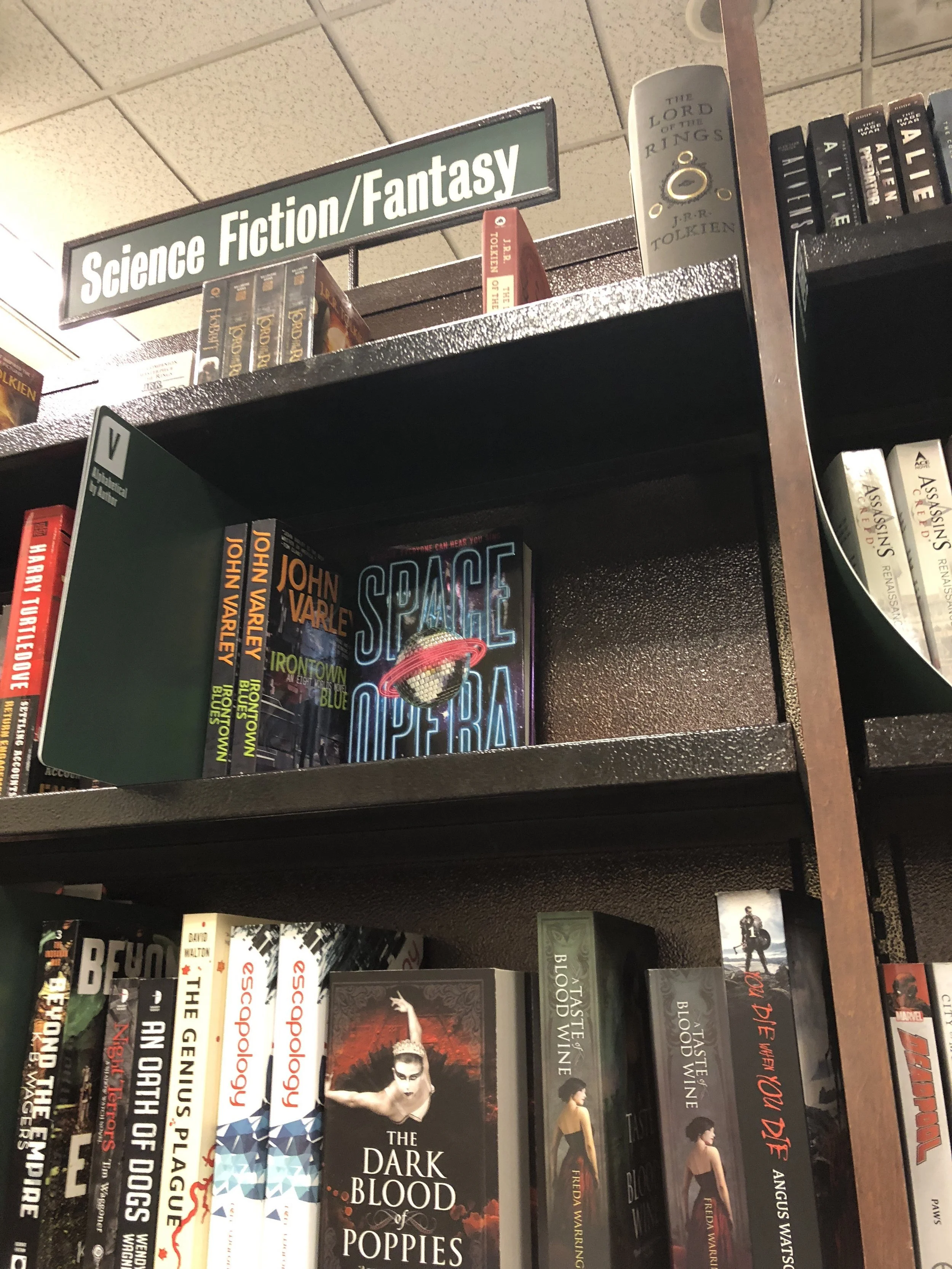It’s not uncommon in the Startup or Tech world to hear the term “Imposter Syndrome”. It’s not a unique term to those respective industries, but it’s definitely more prevalent. The idea behind it is simple, “I’m not as good as other people at this thing, and when I see other people’s work, I feel as though I’m a fraud and shouldn’t be doing the thing I’m doing.”
A quick Wikipedia search throws out this definition: “Impostor syndrome (also known as impostor phenomenon, impostorism, fraud syndrome or the impostor experience) is a psychological pattern in which an individual doubt their accomplishments and has a persistent internalized fear of being exposed as a “fraud”.
It’s true and very real for basically anything you do in life, but can be especially painful when you’re trying to do something outside of your comfort zone.
Like, write a book.
I’m not an English major, nor I didn’t go to a liberal arts college. My writing score on my SAT’s was my weakest by far (not to toot my own horn, but I did really well on the Reading and Math portions). I don’t have extensive experience writing short stories, blog posts, being published in any online or physical magazines. The most I’ve ever written before starting on my latest endeavor was for school assignments, I was a master of the five-paragraph essay.
Ask any of my friends, and they’ll tell you that I suck at spelling (even in things as inconsequential as text messages. I try to blame autocorrect or fat fingers, but really, it’s just me). I still don’t know when to use a semi-colon, and I’ve probably written “it’s” instead of “its” more times than I can count.
I’ve had the creative spark and courage to try and make something out of it, but I’ve never had the tools — the proper tools you might find in other writers. Experience, a degree, practice, etc. I’m a little accounting nerd who loved Lord of the Rings and Star Wars and had an idea for a world in my head. So, I tried my best to make that world a reality.
And that’s a big thing. A huge thing. A wondrous and exciting and awe-inspiring thing. If you have the inspiration to create, and you act upon it — whether it be art or music or writing or any other outlet you choose — you’re doing something extraordinary. That should be commended, exemplified and revered.
But we don’t live in a vacuum of our own accomplishments. It’s human nature to extend our own self-worldview and project onto others. Twitter doesn’t help, and neither does a bookstore. I follow a few writers on Twitter, and many Editors and Literary Agents. They dispense news, tips, and information on the regular — and if you’ve ever thought about trying to make something yourself, I suggest you find people in the industry and follow them.
It comes at a cost, however — not in money or in time, but in self-doubt. An author will tweet out their book, or an editor will tell you what they think makes a good book, a good idea, a worthy example of your craft. You walk into a bookstore or library and suddenly you’re surrounded by authors who’ve accomplished more than you, their names in big, bold letters staring at you saying, “This place isn’t for everyone. You might not be good enough.”
You forget that you’ve written one-hundred thousand words and built a world and characters and motivations. That you’ve hit upon emotions and let yourself become vulnerable. That while you might not have the same credentials, the same backgrounds, the same tools — that you actually might be worthy of a place on a shelf.
I follow these editors, agents, and authors and I love it. They inspire me, they motivate me, they give me ideas. But almost simultaneously they also allow the small voice in the back of my mind to say, “You’re not as good as them.” And honestly, maybe I’m not. No one is as good as anyone else, they are just themselves.
Is my first book amazing? I don’t know. Do I love the world and characters I’ve created? 100% I do. Sometimes I take a break and step away for a bit, and each time I return I fall in love all over again with this world and the writing. Is my story so supremely original that regardless of the critic's tastes they must acknowledge the sheer creativity in it? Probably not. But that’s okay.
I wrote a book. A huge book. I did a big and wonderful thing, that awestruck me every time I think about it. Not because of the quality of the material, or even the size and scope. But rather it’s an amazing thing because I did it. I took a chance on something outside of my comfort zone, outside of my natural skill set, and I didn’t give up.
Imposter Syndrome leads you to think you’re a fraud. But that idea is lacking in intent and courage. It’s hard not to think you’re not good enough sometimes, God knows it happens to me three times a day. But it’s important to reflect on those times and remember that courage and fear aren’t so far removed from each other, and it’s okay sometimes, to allow yourself to be amazed.
See that open spot? That’s where my book will go one day… just you wait :)

